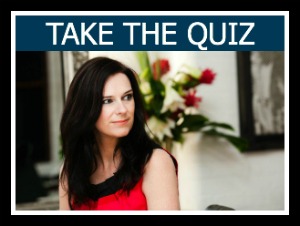My father is neither a politician nor businessman but when I was growing up he always ensured I understood the value of personal branding. He didn't call it this though. All he told me to do was to value my surname and protect it. To me that meant showing integrity, doing what I said I was going to do, and being really good at it. It’s a lesson I’ve never forgotten.
First impressions count. Today, more so than ever. You see, as of today, you are who Google says you are. When someone Google’s your name, the first page of results is how the world sees you. This is your reputation and it’s online for the whole word to see.
The connection between your reputation and cybersecurity is real and continuous. It's more than just protecting an organisation's online assets. It’s actually about protecting trust, which enables us to innovate, collaborate, build wealth and maintain peace whilst using technology for human progress. And trust, as Niloofar Razi Howe, cybersecurity strategist and entrepreneur, so rightly said in her keynote at RSA Conference this year,
“…is to the economy what water is to life.”
So, who the Google are you? Is it clear what you do? Is it clear what you’re good at? Are you referenced? Can testimonials or success stories about the value you bring be found on you? This is a question I always ask my clients when I work with them.
These questions may seem trivial, but in a world where the most cutting edge technology has been designed to leverage your message so you gain buy-in, they matter. And, that's why you must treat your personal brand as an asset for it will find or loose you opportunities and speed up internal stakeholder processes.
One of the first lessons I learnt when I built my penetration testing firm was about branding. Specifically, that success comes down to perception – it is reality and reality is nothing. Within a few months of trading it didn’t matter how good my employees were at their jobs, or how good my products or services were. If the buyer didn't perceive them to be so, they weren't. Branding really became key and it's been like that ever since.
I'm thankful for this lesson early on in my careeer, as the Internet has changed everything. Its search engines have become so powerful, available and user-friendly that your reputation is becoming defined by what anyone says about you, and what the first pages of Google or any other search engine throws up. In today’s world you can forget about professional references. Internet searches are applied first and everyone has a nosey around.
Think about how often you do a quick search before meeting a prospective client, employee, employer, partner or supplier. Think about what you do after meeting someone at a networking event. Chances are you Google them. You mine data that’s held on them via websites and social media before making up your mind on them and taking the next step.
Search engines make this easy. They aim to give you the right content, at the right time, and from the right sources. They make information rich, potent and despite the cry of ‘fake news' in recent years, trustworthy. They provide you with information that will influence you, or help you to make better decisions, particularly when you’re buying a product, service, person, or concept.
Google has been researching this for years. In 2011, they did a large piece of market research called the Zero Moment of Truth (ZMOT). Their objective was to analyse online shopping behaviour prior to purchases. What they discovered was that searching online was as popular as talking to family and friends when making buying decisions. Additionally, that on average, buyers looked at 10.4 sources of online information before making a buying decision.
But that's not all. Further research has shown that 90% of people are affected by online reviews and 86% are affected by negative online reviews. This validates the importance of having a good online personal brand and ensuring your reputation is protected. Reviews are consideration phrases in a buying cycle. They signal someone is thinking about buying from you but hasn’t made up their mind. Furthermore, that they want third party, unbiased information to help them make a decision.
Now I want to hear from you…
- Tell me how you ensure your personal brand is effective? Have you invested in it, and is it working well?
- If it's not and you’re struggling to get started with creating a personal brand OR if you want to learn how to better position yourself so you can build influence within your organisation, get my latest workbook. It's detailed, comprehensive and will give you a step-by-step way. Click here to download it now!





